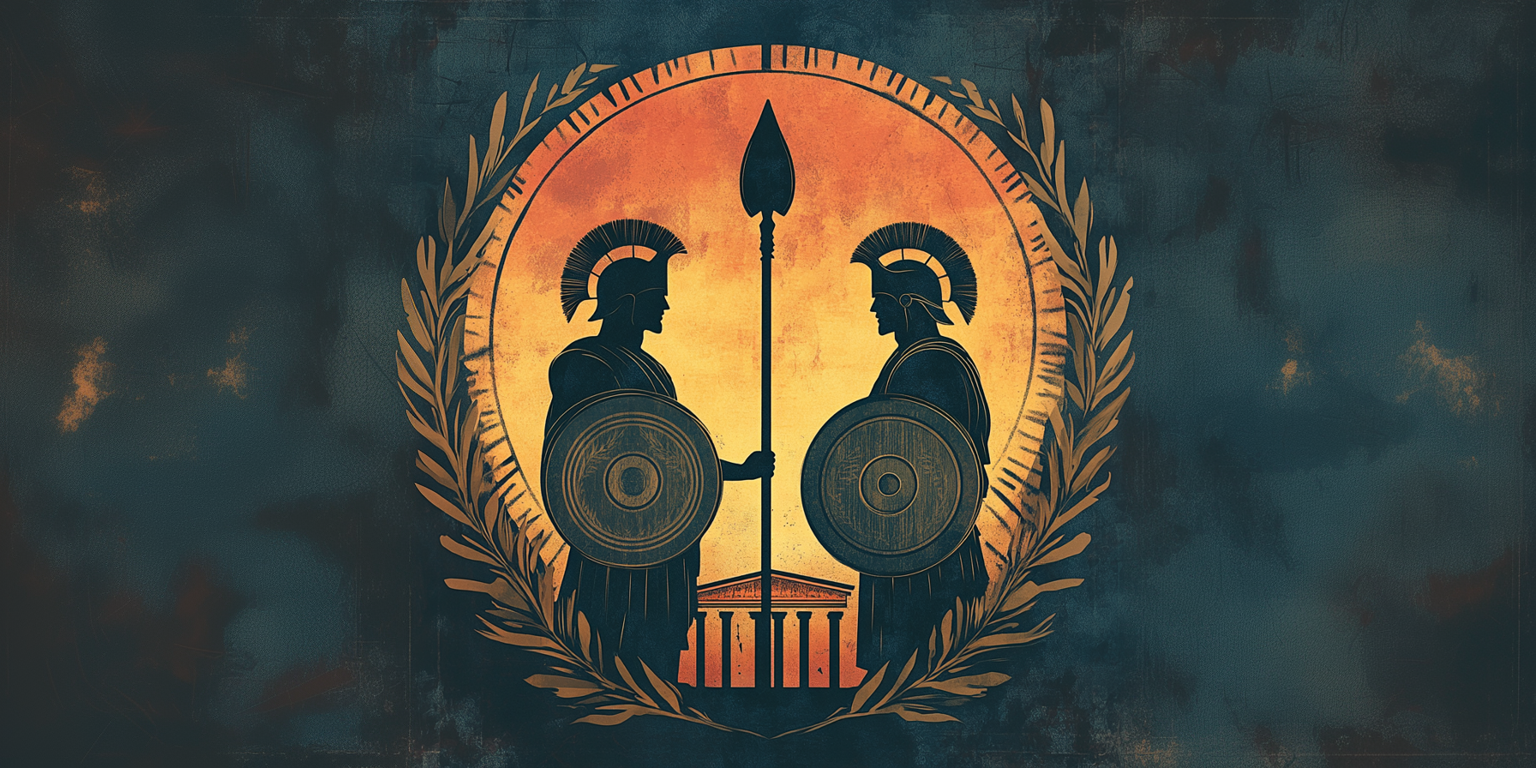Understanding Divine Will and Human Interpretation in Montaigne’s Essays
The main theme of this essay is the danger and folly of humans attempting to interpret or understand divine will and providence through worldly events. The author criticizes those who try to explain God’s intentions and plans through human reasoning, arguing that such attempts are presumptuous and often lead to contradictory conclusions.
The essay particularly focuses on how people misuse religion by trying to validate it through worldly successes or failures, warning that this approach can actually weaken faith when events don’t go as expected. The author advocates for accepting divine wisdom as inscrutable and receiving both fortune and misfortune with humble acknowledgment rather than trying to explain God’s motivations.
The author makes several key arguments in this essay:
- Imposture thrives in unknown territories because their very mysteriousness lends them credibility and makes them harder to question
- People tend to believe most strongly in things they understand least, especially when it comes to divine matters
- Those who claim to interpret God’s will are presumptuous, trying to find explicable causes for every event despite constant contradictions
- It’s misguided to try to validate religion through worldly successes or failures, as this can weaken faith when outcomes don’t match expectations
- Christians should simply accept that all things come from God without trying to understand His inscrutable wisdom
- Human reason is inadequate for understanding divine mysteries, and attempting to do so is dangerous and potentially harmful to faith
- We should be content with the divine knowledge we’re granted rather than presuming to understand more than we’re capable of
The essay presents several compelling arguments about human understanding and divine mysteries. At its core, the author explores how we often fall into the trap of false certainty when dealing with the unknown. He points out, with notable insight, that people tend to be most confident about things they understand least – a paradox that particularly applies to those who claim special knowledge about divine matters.
Building on this foundation, the author delves into a thoughtful critique of those who presume to interpret God’s will. He observes how these self-appointed interpreters stubbornly persist in their explanations, even when faced with contradictory evidence. Their constant need to explain every event as part of divine plan reveals more about human presumption than divine wisdom.
The essay then shifts to a more constructive discussion about the proper Christian approach to understanding divine events. Rather than attempting to decode God’s intentions, the author advocates for a humble acceptance of divine wisdom. This approach, he suggests, is both more authentic and more spiritually mature than trying to justify religious belief through worldly successes.
Perhaps most powerfully, the author warns against the dangerous practice of linking religious truth to earthly outcomes. He illustrates how this approach can backfire, potentially weakening faith when events don’t align with expected divine favor. Instead, he argues for grounding faith in more substantial foundations than temporal victories or defeats.
Throughout the essay, there’s a recurring emphasis on the limitations of human reason in divine matters. The author skillfully demonstrates how attempts to rationalize God’s will often lead to contradictions and spiritual confusion. He concludes with a beautiful metaphor about the sun’s light, suggesting that we should be content with the divine knowledge we’re granted, rather than risking blindness by demanding more.
The author provides several compelling examples to support his arguments:
- Historical Religious Examples: The parallel deaths of Arius and Pope Leo (both dying in similar circumstances in bathrooms), which the author uses to show how attributing divine meaning to coincidences can be misleading
- Contemporary Military Conflicts: The battles of Rochelabeille, Moncontour, and Jarnac, where different sides claimed divine favor for victories while explaining away defeats – demonstrating the inconsistency of attributing worldly success to divine approval
- Cross-Cultural Example: The author cites an Indian nation’s custom of apologizing to their sun god for military defeats, using this to contrast with and critique Western approaches to interpreting divine will
- Naval Battle Example: The victory under Don John of Austria against the Turks, which the author uses to show how people selectively interpret military successes as divine favor
The author’s central argument about the dangers of interpreting divine will remains highly relevant today, perhaps even more so. Modern parallels include:
- Natural Disasters: How different religious groups interpret catastrophic events as divine punishment for specific societal issues
- Political Outcomes: The tendency of various groups to claim divine mandate for political victories while dismissing defeats
- Sports Culture: Athletes and teams attributing victories to divine favor, a modern version of the same selective interpretation
What’s particularly interesting is how this pattern has evolved over time. While the specific contexts have changed from religious wars to modern political and social conflicts, the fundamental human tendency to claim divine backing for worldly success remains remarkably consistent. The author’s warning against using temporal success to validate religious truth seems particularly prescient in our age of prosperity gospel and political-religious movements.
The essay’s critique of human presumption in divine matters has gained additional relevance in our current era of information abundance, where the tendency to claim certainty about complex matters has perhaps increased rather than decreased with our technological advancement.
Key Statements and Influential Arguments in Montaigne’s Essay
Several powerful statements stand out in this essay, particularly in their historical and modern contexts:
- “Nothing is so firmly believed, as what we least know” – This statement was revolutionary in its time, challenging the medieval tradition of accepting religious authorities without question. During the Enlightenment, it became a rallying cry for skepticism and scientific inquiry. Today, it remains remarkably relevant in our era of social media echo chambers and conspiracy theories.
- “‘Tis enough for a Christian to believe that all things come from God, to receive them with acknowledgment of His divine and inscrutable wisdom” – This statement was controversial during the Religious Wars of 16th century France, advocating for religious humility when many were claiming absolute knowledge of divine will. Through the centuries, it influenced religious moderates, though its impact was often overshadowed during periods of religious fundamentalism. Today, it speaks to modern interfaith dialogue and religious tolerance.
- “It were better to possess the vulgar with the solid and real foundations of truth” – This statement challenged the common practice of using miracles and divine signs to convert people. During the Scientific Revolution, it aligned with the growing emphasis on empirical evidence. Today, it resonates in debates about science communication and public education.
The impact of these statements has evolved significantly:
Historical Impact (16th Century):
- Challenged religious orthodoxy during the Counter-Reformation
- Influenced early modern skepticism and rational inquiry
- Provided intellectual ammunition for religious moderates during the Wars of Religion
Intermediate Period (17th-20th Centuries):
- Helped shape Enlightenment thinking about reason and faith
- Influenced development of religious tolerance in Europe
- Referenced in debates about separation of church and state
Modern Impact:
- Provides perspective on religious fundamentalism and extremism
- Offers wisdom for handling misinformation and conspiracy theories
- Contributes to discussions about the limits of human knowledge in an age of information overload
These statements remain forceful today because they address fundamental human tendencies that persist across centuries – our desire for certainty in uncertain matters, our tendency to claim divine backing for worldly affairs, and our struggle with the limits of human knowledge.
Key New Concepts and Information in Montaigne’s Essay
This essay introduces several groundbreaking concepts that were revolutionary for its time:
- Epistemological Humility: The essay presents a sophisticated argument for intellectual humility, particularly in religious matters. This was radical during the 16th century when religious dogmatism and claims of absolute truth dominated European thought.
- Critique of Religious Interpretation: The author introduces a novel approach to understanding divine will, arguing against the common practice of interpreting everyday events as direct divine messages. This was particularly bold during the Wars of Religion.
- Psychology of Belief: The essay presents an early psychological insight into how humans tend to believe most strongly in things they understand least – a concept that wouldn’t be formally studied until centuries later.
The historical significance of these concepts was profound:
- During the Counter-Reformation, these ideas challenged both Catholic and Protestant claims to absolute truth
- They influenced early Enlightenment thinkers in developing principles of religious tolerance
- The concepts helped lay groundwork for the separation of religious and secular thinking
Modern Relevance:
These concepts remain surprisingly relevant today, perhaps even more so:
- Information Age Application: The essay’s warnings about certainty in unknown matters directly applies to modern issues of misinformation and conspiracy theories
- Scientific Humility: The author’s arguments about the limits of human knowledge parallel modern discussions in philosophy of science about the boundaries of human understanding
- Religious Discourse: The essay’s approach to religious tolerance and epistemological humility remains valuable in addressing modern religious extremism and fundamentalism
If shared today, these ideas would be particularly relevant in addressing:
- The rise of absolutist thinking in political and religious discourse
- The challenge of maintaining intellectual humility in an age of information overload
- The need for balanced approaches to understanding complex global issues
The essay’s central insight – that certainty often increases as knowledge decreases – provides a crucial framework for understanding modern phenomena like echo chambers, confirmation bias, and the Dunning-Kruger effect.
Writing Style Analysis and Comparison With Other Montaigne Essays
In “Of Cannibals,” Montaigne’s writing style demonstrates several distinctive characteristics that set it apart from his other essays while maintaining his core philosophical approach. His style here combines classical erudition with direct observational evidence, creating a unique blend that strengthens his arguments about cultural understanding and human nature.
When compared to essays like “Of Moderation” and “Of Pedantry,” this chapter shows Montaigne’s masterful use of paradox and irony to challenge readers’ assumptions. While other essays often build arguments through personal anecdotes and classical references, “Of Cannibals” notably incorporates firsthand accounts and contemporary observations to support its philosophical points. This approach creates a more immediate and persuasive argument about cultural relativism.
The essay’s structure also differs from chapters like “Of the Education of Children” in its systematic dismantling of European prejudices. Rather than the more meandering, conversational style found in some other essays, here Montaigne maintains a more focused argument while still employing his characteristic skeptical methodology.
His use of classical references in this chapter is particularly sophisticated compared to other essays. While works like Chapter 23 use classical examples primarily for authority, “Of Cannibals” employs them as points of comparison to challenge contemporary European assumptions. This demonstrates a more nuanced integration of classical learning with contemporary observation.
The essay’s treatment of opposing viewpoints shows greater sophistication than some of his other works. While Montaigne consistently approaches contrary positions with intellectual charity, here he systematically examines and challenges European cultural assumptions with particular precision and effectiveness.
In contrast to essays like “Of Moderation,” where he explores the dangers of excess in human behavior, “Of Cannibals” maintains a sharper focus on cultural comparison and critique. His writing style here is more deliberately provocative, using shocking comparisons and careful reasoning to challenge readers’ preconceptions.
The personal voice that characterizes all of Montaigne’s essays takes on a different quality in this chapter. While still present, it serves more as a lens for cross-cultural observation than the introspective exploration found in many other essays. This shift in narrative perspective helps strengthen his arguments about cultural relativism.
His use of vivid examples and analogies, a trademark of his writing style, takes on particular significance in this essay. Unlike chapters focused on more abstract philosophical concepts, here Montaigne employs concrete examples from both European and Native American societies to illuminate his points about cultural bias and human nature.
The essay’s conclusion demonstrates a more decisive philosophical stance compared to some of his other works. While Montaigne typically maintains a skeptical position that avoids absolute conclusions, in “Of Cannibals” he makes stronger assertions about the nature of barbarism and civilization, though still within his characteristically moderate framework.
Throughout the essay, Montaigne’s balance between skepticism and empirical observation reaches a particular refinement. While other essays might lean more heavily on classical authority or personal reflection, here he achieves a sophisticated synthesis of direct observation, classical learning, and philosophical inquiry that sets this chapter apart in his body of work.
Unresolved Questions and Modern Implications
Several significant questions and issues raised in this essay remain relevant or unresolved today:
- The Limits of Human Understanding of Divine Will: The essay raises fundamental questions about humanity’s ability to interpret divine intentions. This issue remains unresolved, with religious communities still debating the extent to which humans can understand or interpret divine will. Modern theological discussions continue to grapple with this question, though approaches have evolved from direct divine interpretation to more nuanced theological frameworks.
- The Relationship Between Knowledge and Certainty: The author’s observation about the inverse relationship between knowledge and certainty remains a persistent challenge. While cognitive psychology has provided scientific frameworks for understanding this phenomenon (like the Dunning-Kruger effect), the fundamental human tendency to be most certain about things we least understand continues to impact modern discourse, particularly in political and social media contexts.
- The Role of Religion in Military Conflicts: While the specific context of 16th-century religious wars has changed, the broader question of religious justification for military actions remains unresolved. Modern conflicts still often involve religious elements, though usually intertwined with political, economic, and social factors in more complex ways than during the author’s time.
Some issues have evolved in unexpected ways:
- The Nature of Authority and Truth: While the essay questions religious authority’s claims to absolute truth, this issue has transformed in the modern era. Instead of challenging purely religious authority, we now face questions about the nature of truth itself in an age of competing information sources and “alternative facts.”
- The Impact of Ignorance on Belief: The author’s concerns about how ignorance affects belief have taken on new dimensions with the rise of social media and instant global communication. While the basic psychological principle remains unchanged, its manifestation has become more complex and potentially more dangerous in the digital age.
Several issues have found partial resolution:
- Separation of Church and State: The essay’s concerns about mixing religious interpretation with state affairs have been partially addressed through modern secular governance systems, though debates continue about the proper relationship between religious beliefs and public policy.
- Scientific Understanding: The author’s critique of unfounded beliefs has been somewhat addressed through the development of scientific methodology, though new forms of pseudoscience and unfounded beliefs continue to emerge.
The persistence of these unresolved questions demonstrates the essay’s enduring relevance. While some issues have found partial resolution through institutional, legal, or social changes, the fundamental human tendencies the author identified continue to manifest in new forms, requiring ongoing attention and analysis.
This essay on truth, belief, and imposture significantly deepens our understanding of Montaigne’s broader philosophical project by exploring fundamental questions about human knowledge and certainty. Through his examination of how people tend to believe most strongly in things they least understand, Montaigne develops one of his core themes: the importance of intellectual humility and skepticism.
The essay contributes to the book’s overall exploration of human nature by revealing how readily humans accept unexamined beliefs, particularly in matters beyond their comprehension. This aligns with Montaigne’s broader project of questioning accepted wisdom and encouraging critical self-examination.
Furthermore, the essay’s discussion of how ignorance breeds certainty connects to Montaigne’s recurring theme of the limitations of human knowledge. By examining how people tend to be most confident about subjects they know least about, the essay reinforces the book’s emphasis on skepticism as a philosophical approach.
The author’s treatment of religious interpretation and divine will also deepens our understanding of how Montaigne navigates sensitive theological matters. His suggestion that “it is enough for a Christian to believe that all things come from God” while questioning human interpretation of divine will demonstrates his characteristic balance between religious faith and intellectual skepticism.
Through its examination of imposture and belief, the essay illuminates Montaigne’s method of combining classical learning with personal observation. This approach, evident throughout the Essays, shows how he builds upon traditional wisdom while maintaining his distinctive skeptical perspective.
Essay’s Contribution to Book’s Core Themes and Arguments
This essay on truth, belief, and imposture contributes significantly to Montaigne’s larger philosophical project throughout his Essays. It examines key themes that recur across his work, particularly the relationship between knowledge, belief, and human understanding. The essay demonstrates Montaigne’s characteristic approach of questioning accepted wisdom while maintaining intellectual humility about human knowledge’s limitations.
The chapter aligns with Montaigne’s broader examination of human understanding and the limits of knowledge found throughout his works. Like his other essays, such as “Of Pedantry” and “That It Is Folly to Measure Truth and Error by Our Own Capacity,” this piece challenges readers to question their assumptions and examine issues from multiple perspectives.
Through its exploration of how people tend to believe most strongly in things they least understand, the essay reinforces the book’s emphasis on skepticism as a philosophical approach. It complements other chapters like “Of Cannibals” and “Of Moderation” in demonstrating Montaigne’s balanced approach to questioning conventional wisdom while avoiding extreme positions.
The essay’s treatment of religious interpretation and divine will also connects to broader themes about faith, reason, and human limitation that appear throughout the Essays. Its suggestion that “it is enough for a Christian to believe that all things come from God” while questioning human interpretation of divine will exemplifies Montaigne’s characteristic balance between religious faith and intellectual skepticism.
Thematic Connections and Parallel Ideas Across Essays
The ideas in this chapter connect to previous essays in several significant ways, both as originally intended by Montaigne and through evolving interpretations over time:
Original Connections:
- The essay’s skepticism about human knowledge directly builds on themes from “Of Pedantry” and “That It Is Folly to Measure Truth and Error by Our Own Capacity,” reinforcing Montaigne’s consistent emphasis on intellectual humility.
- Its treatment of religious interpretation complements the cultural critiques found in “Of Cannibals,” showing Montaigne’s systematic approach to questioning conventional wisdom.
- The discussion of imposture relates to his exploration of education in “Of the Education of Children,” particularly regarding the difference between true understanding and mere appearance of knowledge.
Connections That Have Strengthened Over Time:
- The essay’s insights about certainty and ignorance have gained new relevance when read alongside “Of Pedantry” in the context of modern information ecosystems.
- Its warnings about religious interpretation have found new resonance when paired with “Of Moderation” in discussions of modern religious fundamentalism.
- The relationship between this essay and “That It Is Folly to Measure Truth” has deepened as both works speak to contemporary epistemological challenges.
Connections That Have Weakened:
- Some specific religious controversies discussed in relation to other essays have become less immediately relevant to modern readers.
- Certain classical references that originally tied this essay to others in the collection may require more context for contemporary audiences.
Current Contextual Relationship:
- Modern readers often approach this essay as part of Montaigne’s broader epistemological project, seeing stronger connections to his other writings on knowledge and understanding.
- The essay’s themes about belief and certainty have become increasingly central to interpretations of Montaigne’s work as a whole.
- Contemporary scholarship tends to emphasize how this essay exemplifies Montaigne’s innovative approach to skepticism and self-examination, strengthening its connections to the rest of his work.
Read the essay – https://hyperessays.net/essays/hazarding-an-opinion-on-gods-plans-demands-caution




